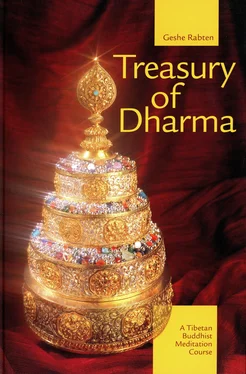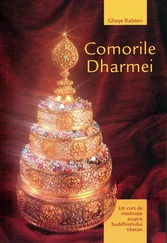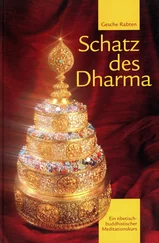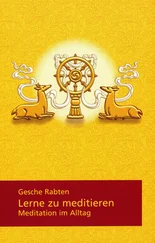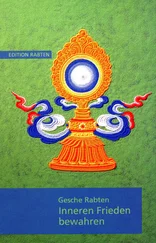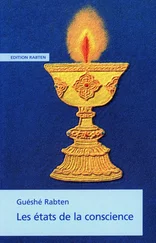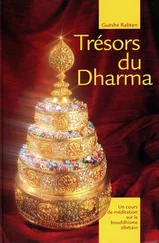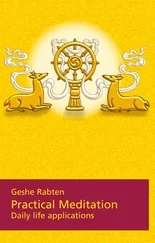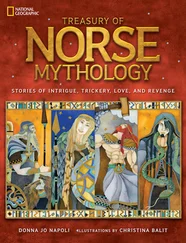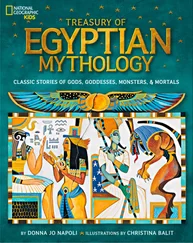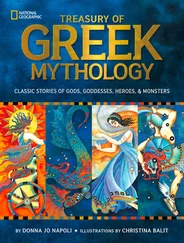Géshé Rabten - Treasury of Dharma
Здесь есть возможность читать онлайн «Géshé Rabten - Treasury of Dharma» — ознакомительный отрывок электронной книги совершенно бесплатно, а после прочтения отрывка купить полную версию. В некоторых случаях можно слушать аудио, скачать через торрент в формате fb2 и присутствует краткое содержание. Жанр: unrecognised, на английском языке. Описание произведения, (предисловие) а так же отзывы посетителей доступны на портале библиотеки ЛибКат.
- Название:Treasury of Dharma
- Автор:
- Жанр:
- Год:неизвестен
- ISBN:нет данных
- Рейтинг книги:3 / 5. Голосов: 1
-
Избранное:Добавить в избранное
- Отзывы:
-
Ваша оценка:
- 60
- 1
- 2
- 3
- 4
- 5
Treasury of Dharma: краткое содержание, описание и аннотация
Предлагаем к чтению аннотацию, описание, краткое содержание или предисловие (зависит от того, что написал сам автор книги «Treasury of Dharma»). Если вы не нашли необходимую информацию о книге — напишите в комментариях, мы постараемся отыскать её.
Treasury of Dharma — читать онлайн ознакомительный отрывок
Ниже представлен текст книги, разбитый по страницам. Система сохранения места последней прочитанной страницы, позволяет с удобством читать онлайн бесплатно книгу «Treasury of Dharma», без необходимости каждый раз заново искать на чём Вы остановились. Поставьте закладку, и сможете в любой момент перейти на страницу, на которой закончили чтение.
Интервал:
Закладка:
3 Placing
When a meditator becomes proficient in the third stage, placing, he or she will be able to visualize the breath as if it were a thin line of incense smoke which remains immobile and extends from the nostrils down to the feet. At that time there is no longer any inhalation or exhalation. This is not accomplished by inhibiting the breathing but is the natural outcome of the practice. The meditator will now be able to stop his breathing at will and without force and to keep his mind fixed on the image of the breath as a long, thin line of smoke. Also, he will be able to use a small part of the mind to investigate what is happening in his body; for example, what his physical sensations are at the time of being absorbed in this meditation. It is important that all these practices be done without forcing the breath. One should be relaxed and at ease. If you try to overdo things the mind will become tense and upset and the practice ineffective. When the meditator is proficient in this practice he or she will be able to breathe calmly and evenly, to stop his breath and to remain concentrated for long periods of time. These abilities will arise naturally as a result of the practice and should not be prematurely forced. By doing this exercise one gains control of the breath and as a result, of the mind. Both the body and mind will become relaxed and supple. When we have achieved this complete control of the breathing and with it of our mind, we shall no longer have to force ourselves to meditate, nor need anyone else to encourage us. We will want to meditate just as some people like to sleep. A person who enjoys sleeping need not be told to do so. He sleeps because he likes to! The same will happen with our meditation. Although we will not be able at present to do this third stage of placing properly we should nonetheless familiarize ourselves with it, as it will be good training. Our principal practice will be the first breathing exercise and from time to time we should do the second and occasionally the third. Eventually, when these three stages have been completed, the meditator can move on to the fourth stage.
4 Investigating
In the fourth stage, investigating, the mind is mainly focused on the breath, but at the same time a small part of it analyses and investigates the nature of the air that is being breathed in order to understand that this air is composed of various elements, earth or solidity, water or fluidity, fire or heat, and air or motility. Also, that it has a form and odour, a taste and can be touched. This air is therefore composed of eight parts or elements. This explanation is only to give you an idea of what happens at the fourth stage of investigation but for the time being we should not try to do it as it would be too complicated. When this stage has been perfectly mastered we can move on to the fifth, that of changing.
5 Changing
I will not speak about this stage yet as it cannot be started until one has meditated a great deal and achieved a fairly advanced state of development on the path. For those of you who have some familiarity with the Dharma I will mention that it is related to the path of accumulation. Eventually, by making continuous efforts, the meditator reaches the sixth stage of completion.
6 Completion
At this point he becomes an Arya, or one who has reached the path of seeing. This is followed by the path of meditation and that of no-further-practice. For the present we should only be concerned with the first three breathing exercises. I have mentioned the last three only to give you some idea about them. They can be practised only after mastering the first three. We should understand that awareness of breathing is not only simple mindfulness of breathing, but includes these six stages and the entire process involved in developing them. The result is complete mastery of the mind.
Regardless of whether one is young or old, now is the time to begin practising these methods to gain control of the mind. Young people in particular can devote a great deal of time and energy to this. Also, because they have strong and healthier bodies they can achieve very satisfactory results. If we find in life that we are experiencing unhappiness and pain it is a result of our not having gained control of the mind. Rather, we allow ourselves to follow wherever it leads and we become hopelessly entangled in frustrating problems. Now, we must begin to develop some control and eventually become its master. There are many great thinkers on this Earth, but most of them are concerned solely with external matters. Here, we are concerned with what goes on within the mind. We must reflect upon and observe this. There are very few people who use their mind in this way. For this reason, our meditation on breathing is far more important than just thinking about trees, mountains and where we would like to take a holiday. If our attention is focused primarily on externals our mind will flit to and fro and there will be very little semblance of order. On the contrary, if we concentrate on our breathing we will be focusing our mind on a single object and thus preventing it from wandering aimlessly. This is a key practice if we want to gain control of the mind. Before doing this awareness-of-breathing meditation it is best to begin the session by cleansing the three channels with the nine-round breath meditation. Furthermore, this exercise will be advantageous in later, more advanced practices when the same channels will be used. But if someone finds this practice difficult it is not necessary that he or she do it. They may omit this exercise and begin with the counting of the breaths. One should do the meditation practice which one finds most beneficial. It is like taking the right medicine to cure a disease. We do not take all the possible remedies when we are sick, but choose the one most appropriate to our particular illness.
By starting these breathing awareness exercises, we have begun to practise meditation. There are two kinds of meditation, investigative or analytical meditation, and con-centrative or single-pointed meditation. The counting of breaths and the exercise using the channels are in the latter category. We can alternate our practice of breath awareness with contemplation on various aspects of the teachings that we have heard; for example, on the nature of the three kinds of suffering, their causes and conditions. We can consider whether or not these ideas are confirmed by our own experience. And if so, why. In this way, we can alternate analytical meditation with concentrative meditation.
The Causes of Suffering
When someone is seriously ill he goes to the hospital for medical treatment. He does so because he realizes that he is sick and wants to be cured. We must develop a similar state of mind with regard to our present situation. We are suffering. And as long as we are controlled by delusions we will continue to suffer. Our aspiration to practise Dharma must come from a recognition of this suffering, from the resolve to free ourselves from it and from the understanding that the way to do so is through the practice of Dharma. The cause of unhappiness is within us and so, therefore, is the way to overcome it. This being so, it seems only logical that we should take advantage of our situation and work hard at it. The Dharma is for everyone, young and old, men and women. There are no restrictions on who can practise. If someone is ill, and has an effective remedy at hand he would be foolish not to use it. Or if a person wants iron and has mountains of iron ore he should certainly make an effort to refine the ore and extract the iron. Just as a person can smelt iron ore and obtain iron and then from that iron make countless different objects, so too with our mind we can extract the essence of life and practise Dharma to eliminate our suffering. It is very important that you should remember what I have said and think about this, comparing it with your own experience. Don’t be discouraged by any difficulties you encounter. Rather be happy that you can make this effort and experience these problems for such a meaningful and wholesome purpose, the practice of Dharma.
Читать дальшеИнтервал:
Закладка:
Похожие книги на «Treasury of Dharma»
Представляем Вашему вниманию похожие книги на «Treasury of Dharma» списком для выбора. Мы отобрали схожую по названию и смыслу литературу в надежде предоставить читателям больше вариантов отыскать новые, интересные, ещё непрочитанные произведения.
Обсуждение, отзывы о книге «Treasury of Dharma» и просто собственные мнения читателей. Оставьте ваши комментарии, напишите, что Вы думаете о произведении, его смысле или главных героях. Укажите что конкретно понравилось, а что нет, и почему Вы так считаете.
